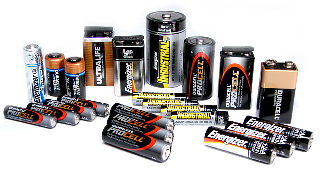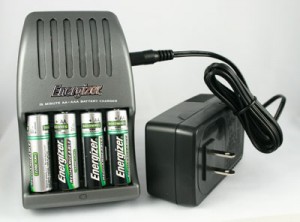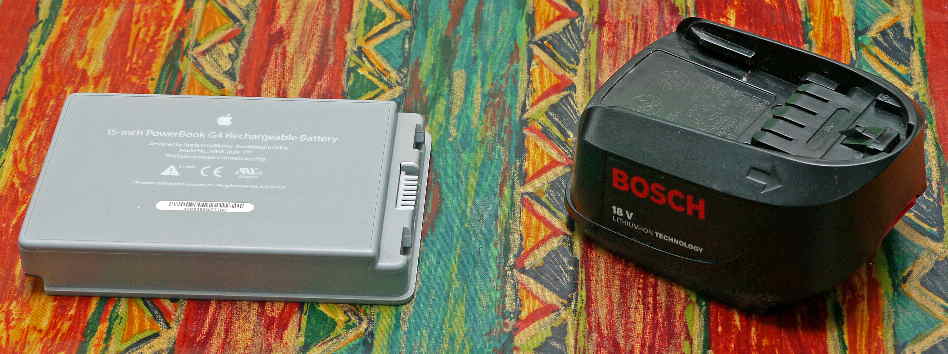
Recycling disposable batteries

Disposable batteries (photo at right) should not be thrown away with your landfill rubbish because they contain toxic chemicals that may be harmful, and which should be recycled. Despite this, at present most disposable batteries end up in landfill.
However, you can put used batteries out with your green recycling bin. Put them in a small plastic bag (similar in size to a sandwich bag) and leave the bag out on top of your green bin on your normal recycling week. All regular batteries are accepted. You can also recycle laptop, mobile phone and lithium batteries with the terminals taped up. However, this service cannot accept batteries with trailing wires, car or other industrial batteries
In addition, all shops that sell batteries in reasonable quantities (at least one pack per day) must now provide a box or bin for recycling used ones. You can also take used batteries to the local waste disposal site in Drayton.
But why not switch to rechargeables?
Using rechargeables
Standard-size rechargeable batteries (AAA, AA, C or D) cost a couple of times more than disposables, but recharging them costs a small fraction of a penny, so once you have bought the batteries and a suitable charger (see photo) the running costs are negligible. Newer types of rechargeable batteries such as NiMH (nickel metal-hydride) are much improved over the earlier NiCd (nickel-cadmium) ones:

- they hold more charge
- the charge doesn’t leak away as quickly when the batteries are not being used
- they don’t suffer from the ‘memory effect’ that sometimes prevented NiCds from recharging fully
When buying, note that the battery capacity varies with price – it is marked on the pack in mAh (milliamp-hours). NiMH batteries can be recharged 100–1000 times.
Caution: there are a few applications where you should not use rechargeables:
- devices that use a battery for a very long time, for example smoke detectors, because disposables hold their charge for much longer
- a few electronic devices that need the higher voltage of disposable batteries – check the instructions
Rechargeable lithium-ion (Li-ion) and lithium-ion polymer batteries hold much more charge but are also more expensive – they often come in custom sizes and shapes for everything from mobile phones, cameras, laptop computers and power tools to hybrid and electric cars. The photo below shows lithium-ion batteries for a laptop and a garden trimmer.

